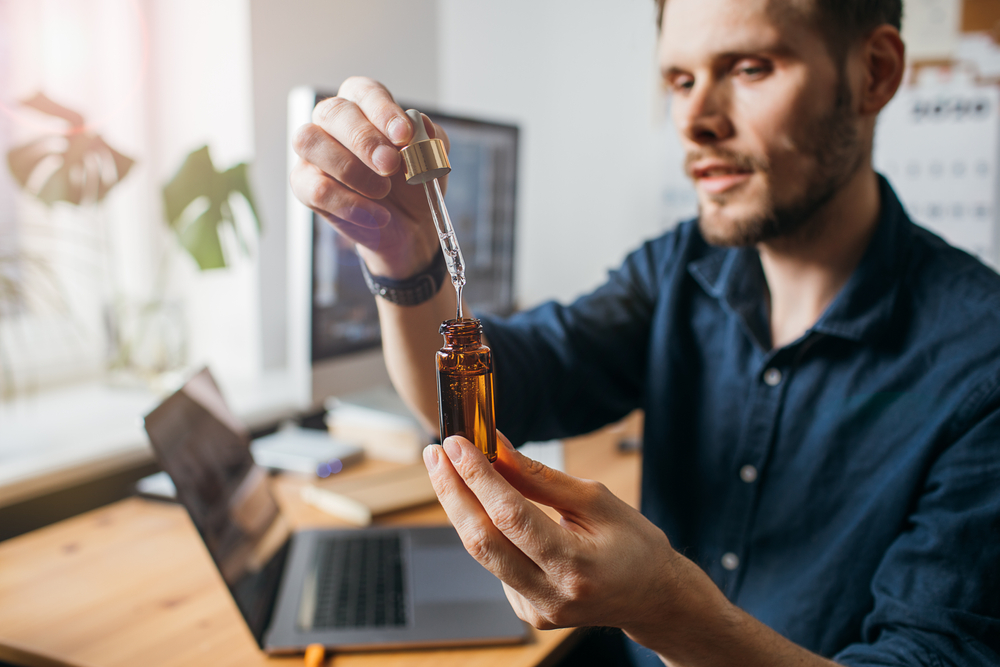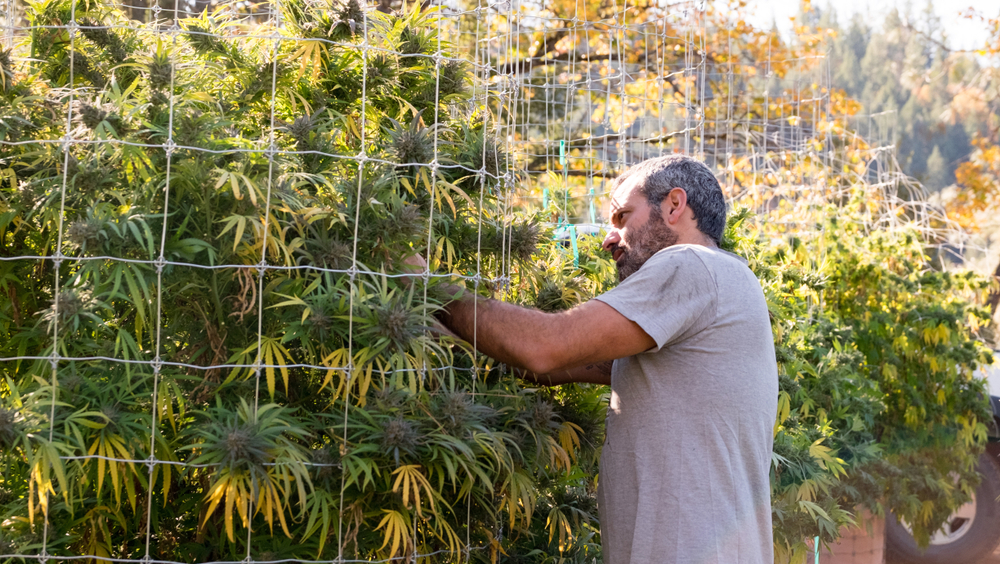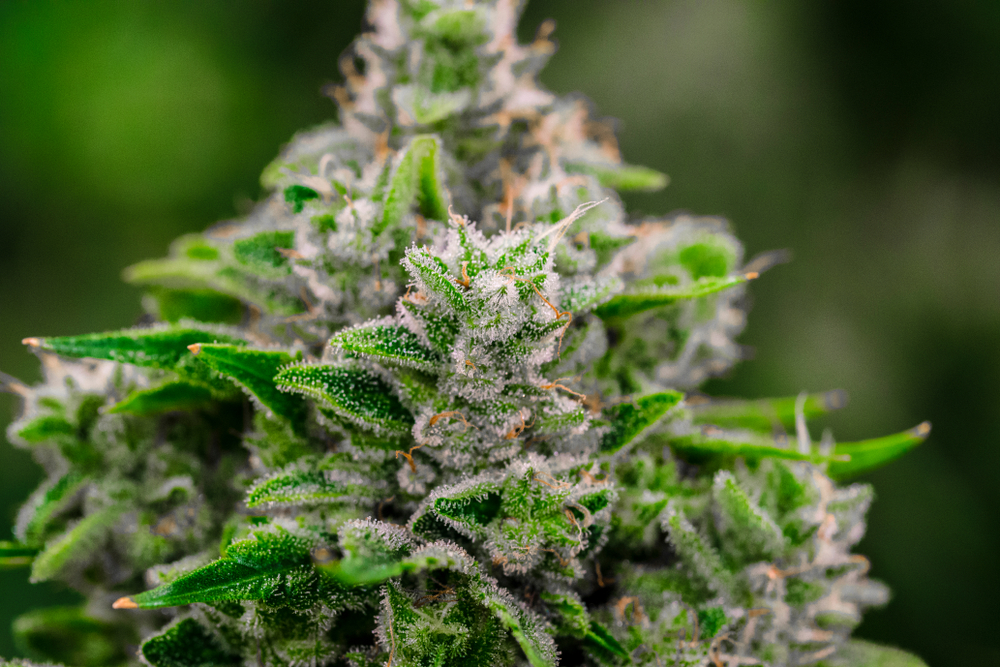Education
Delta-8 THC – THC’s Less Potent Partner
Cannabis is made up of tons of different components and cannabinoids but have you heard of Delta-8 THC?
If you were to ask the average person what Delta-8 THC was, they likely wouldn’t be able to give you an answer.
Even seasoned cannabis connoisseurs may have a bit of trouble finding the right words!
At Sugar Jack’s, we’re passionate about breaking through all the confusing language and simplifying things to make them relevant and easy to understand to consumers.
With this in mind, we’re going to get to the bottom of what Delta-8 THC is, its place in the cannabis industry and the questions surrounding its hazy legal status.
What is Delta-8 THC?
What if we told you that there was more than one type of THC? Mind-blowing, right?
Well, it’s true!
In fact, there are well over 100 different cannabinoids present in your favourite plant.
The THC we’re more familiar with, also known by its longer, more sciency name Delta-9 tetrahydrocannabinol, is one of the most widely known because it’s the cannabinoid responsible for supplying the standard ‘high’ we all know and love.
Delta-8 THC, also known by a longer, more technical name Delta-8 tetrahydrocannabinol, is unique in its own right.
The 8 in Delta-8 tetrahydrocannabinol represents a chemical bond placement, one step over from where it’s located in Delta-9 THC.
Don’t worry – we’re not going to break out into a full-on chemistry lesson, but the placement is important, so we’ll try and explain it as simply as possible.
All this means is that, even though Delta-8 and Delta-9 THC share a similar molecular structure, a certain chemical bond appears on the eighth carbon instead of the ninth.
So, while Delta-8 shares some qualities with its Delta-9 THC counterpart, other factors set them apart.
Comparing Delta-8 THC vs THC
Like we said above, Delta-8 and THC share multiple similarities. They’re both helpful in treating nausea, anxiety, pain and for stimulating appetite, for example.
That said, Delta-8 is cannabis and hemp-derived.
In other words, you can extract it from marijuana plants, or from hemp using specific breeding, extraction and processing methods.
Due to its chemical bond location, Delta-8 THC interacts with the body’s endocannabinoid system slightly different from Delta-9 THC.
This means that depending on how you plan to use it, the effects of Delta-8 THC are far weaker than your standard Delta-9 THC.

You’ll likely hear Delta-8 tetrahydrocannabinol described as ‘THC Lite’ because it still produces similar effects to tetrahydrocannabinol THC.
They’re just weaker. So, bottom line, Delta-8 will still get you high, just not as high as Delta-9 THC.
However, this isn’t necessarily a bad thing.
These lighter effects mean that the chances of suffering some of the more unfavourable side effects of weed, like a green out, are lower.
This factor could be beneficial for tokers more sensitive to THC or with lower tolerance levels.
Since it’s less psychoactive, Delta-8 THC also produces a more clear-headed high, which allows users to remain functional while still reaping the benefits of THC!
Is Delta-8 Safe?
While the applications for this cannabinoid are promising, the scientific evidence surrounding Delta-8 is still relatively lacking. More research is necessary to understand its short and long-term effects.
As well, of the current evidence available, a majority consists of solely animal studies, with limited evidence on how Delta-8 THC interacts with the human body.
There are also questions surrounding the legal status of this cannabinoid.
Depending on where you live, the restrictions surrounding Delta-8 THC might remain somewhat unclear.
The reason for this confusion lies in the fact that Delta-8 THC can be cannabis or hemp-derived.
In other words, while there are many regions where weed is still illegal, hemp, for the most part, is federally legal.
Many producers and consumers see Delta-8 THC as a potential legal loophole to get high without facing any criminal charges.

The question of whether Delta-8 is entirely safe, however, remains up in the air.
Since creating it involves altering CBD synthetically to create Delta-8 tetrahydrocannabinol, the process is not well-regulated.
Manufacturers do this because synthetically altering CBD is way cheaper to make since only trace amounts of the cannabinoid are found in hemp.
While more research into its effects on the human body is necessary, one of the most cited studies to look into Delta-8 THC is from the 1990s and describes the cannabinoid as an “efficient new cannabinoid antiemetic in pediatric oncology.”
For those that didn’t go to medical school, all antiemetic means is that it helps treat nausea, and oncology is the specific type of medicine that deals with cancer.
All things considered, the limited amount of scientific research surrounding the various properties of Delta-8 tetrahydrocannabinol and its potential negative side effects make determining a safety level difficult at best.
So, with this in mind, tokers should approach and try it at their own risk!
Delta-8 THC – A New Category of Cannabis Products?
Delta-8 THC can be understood as a tamed-down version of regular THC.
While many regions across North America have legalized recreational and medicinal weed, not everyone has yet.
The cannabis industry is nothing if not resilient, and producers have found avenues to create Delta-8 THC as a loophole to navigate various restrictions.
However, as we’ve highlighted throughout, the effects are weaker than standard THC. This could be a good or bad thing, depending on your desired effects and individual tolerance level.
If you want to give Delta-8 a try, we would advise you to approach it with caution. Since its legal status remains somewhat undefined, the quality assurance practices surrounding its creation are far less regulated.
In other words, you may not know precisely what you’re getting.
With limited research about its impacts on the human body, further research is required to draw any real conclusions surrounding its safety.
Stay safe, friends!



